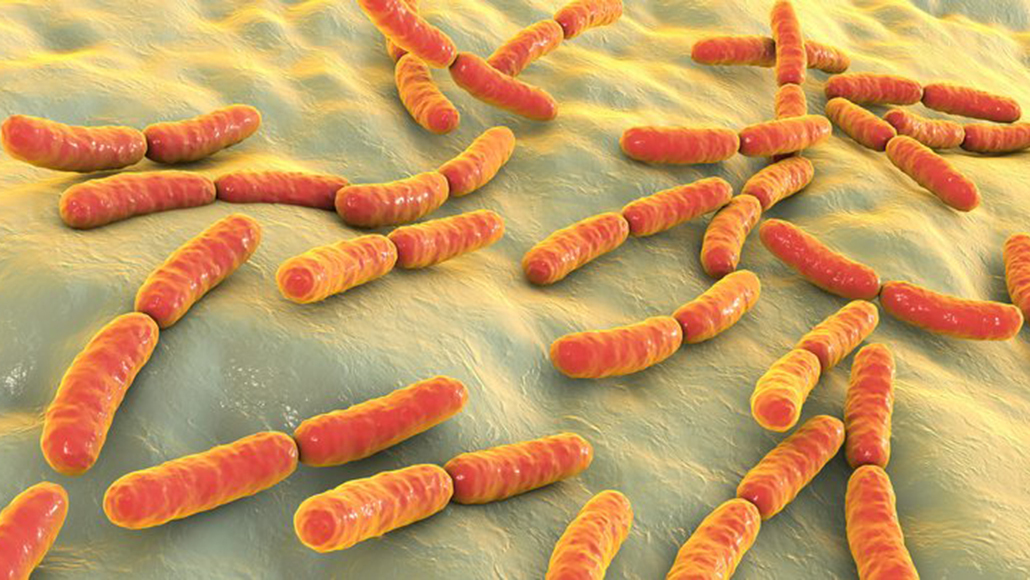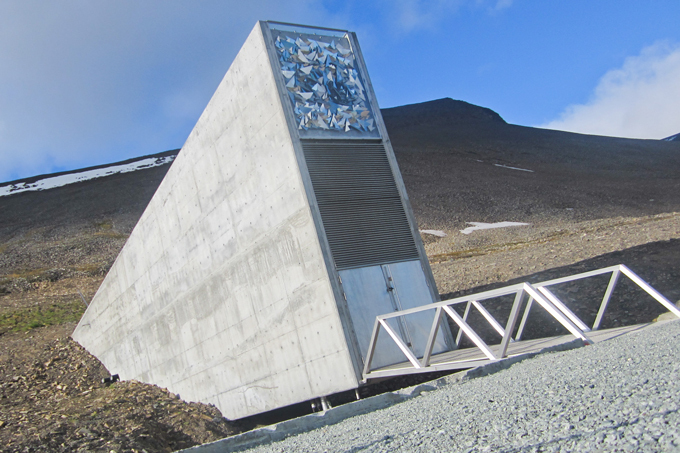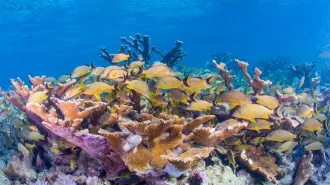
The Lactobacillus bacteria in our intestines, shown here in a computer illustration, are just some of humans’ many microbial residents that are disappearing.
Science Photo Library/Alamy Stock Photo
Our bodies host a vast ecosystem of bacteria, viruses and fungi. Just as scientists are beginning to understand how this microbiome supports human health, hallmarks of modern life such as antibiotics and processed foods may be pushing many of our microbial residents toward extinction.
Now an international team of scientists wants to safeguard humanity’s long-term health by creating a Noah’s Ark for microbes. Taking inspiration from the Svalbard Global Seed Vault, which protects the world’s crop diversity from natural or human-made disasters, the team proposes to create the Microbiota Vault to preserve human microbiome collections that may one day be used to prevent disease.
The project is both possible and prudent, a team of independent experts at two Switzerland-based firms, EvalueScience and advocacy. reports June 11. “If we are just at the beginning of really understanding and elucidating what is the role of the microbiota, it is of course precautionary to at least safeguard part of this diversity before it just goes away,” says Dominik Steiger, chief operating officer of EvalueScience, which is based in Zurich.
Studies, mostly in animals, suggest that a missing microbe or a dearth of microbial diversity may contribute to a wide range of health conditions, from obesity and inflammatory bowel disorders (SN: 10/16/17) to C. difficile infection (SN: 10/24/18) and Lou Gehrig’s disease (SN: 7/22/19).
Researchers suspect that many modern practices contribute to the decline of our beneficial microbial partners, including being born by cesarean section (SN: 9/18/19), eating a low-fiber diet (SN: 1/15/16) and overusing antibiotics (SN: 7/31/15).

“Rural peoples are urbanizing and traditional peoples living in savannas and in jungles are moving to cities,” says Maria Gloria Dominguez-Bello, a microbiologist at Rutgers University in New Brunswick, N.J., and a leader of the Microbiota Vault initiative. “What we see is that we are losing [microbiome] diversity, and in parallel there is a correlation with increase in chronic diseases.”
Dominguez-Bello has worked with local researchers in Venezuela, Bolivia, Peru and Brazil to collect and study stool samples from indigenous populations in those countries. In 2017, she and her colleagues published a study in Science that shows that the more industrialized a society, the less diverse its microbiome. The gut diversity of people in the United States is almost half that of the most isolated Amerindians living in South America, she says.
Dominguez-Bello’s research collections have been in jeopardy many times, from political unrest when her lab was based in Venezuela to Hurricane Sandy after she’d moved her lab to New York University.
So the idea for the Microbiota Vault, first proposed in a 2018 Science paper, is that microbiome collections, many of which like Dominguez-Bello’s already exist in research or health facilities all over the world, would be maintained locally, as well as stored in a backup vault in a politically stable location. The feasibility report recommends Switzerland or Norway, possibly even alongside or within the Svalbard Global Seed Vault.
The report also suggests that specimens could be preserved by cryopreservation, cooling them to very low temperatures. As a backup, researchers should also consider using a less tested freeze-drying technique known as lyophilization.
The initiative, run as a global nonprofit, would encourage the development of more microbiome collections by creating courses to train researchers across the globe to collect samples from indigenous populations in their regions. In a pilot phase, Dominguez-Bello plans to host a course in Lima, Peru with collaborators from local universities, but the timing is uncertain due to the coronavirus pandemic.
Sign up for our newsletter
We summarize the week's scientific breakthroughs every Thursday.
Funding for such an initiative would likely originally come from research entities and philanthropic organizations but could grow to include a larger portion of government funding once the project becomes more established, says Steiger.
“The Microbiota Vault really seems like it has huge potential to benefit human health,” says Matthew Kelly, a pediatrician and global health specialist at Duke University, who is not involved with the initiative. But Kelly cautions that the ethics of the project are complex, and researchers will need to clearly communicate with indigenous communities about the benefits, if any, to their participation in this research.
Ethics will be a major component of the courses, says Dominguez-Bello. In a 2016 opinion piece in Nature Microbiology, she and coauthors state that any commercialization resulting from samples collected from indigenous peoples “should be done with the highest ethical standards, respect for native cultures, and involving a mediator of their choice, familiarized with financial systems and terms, who can defend their interests.”
Many indigenous communities also recognize the potential health benefit of banking their microbes, as they too are moving toward industrialization, she says.







